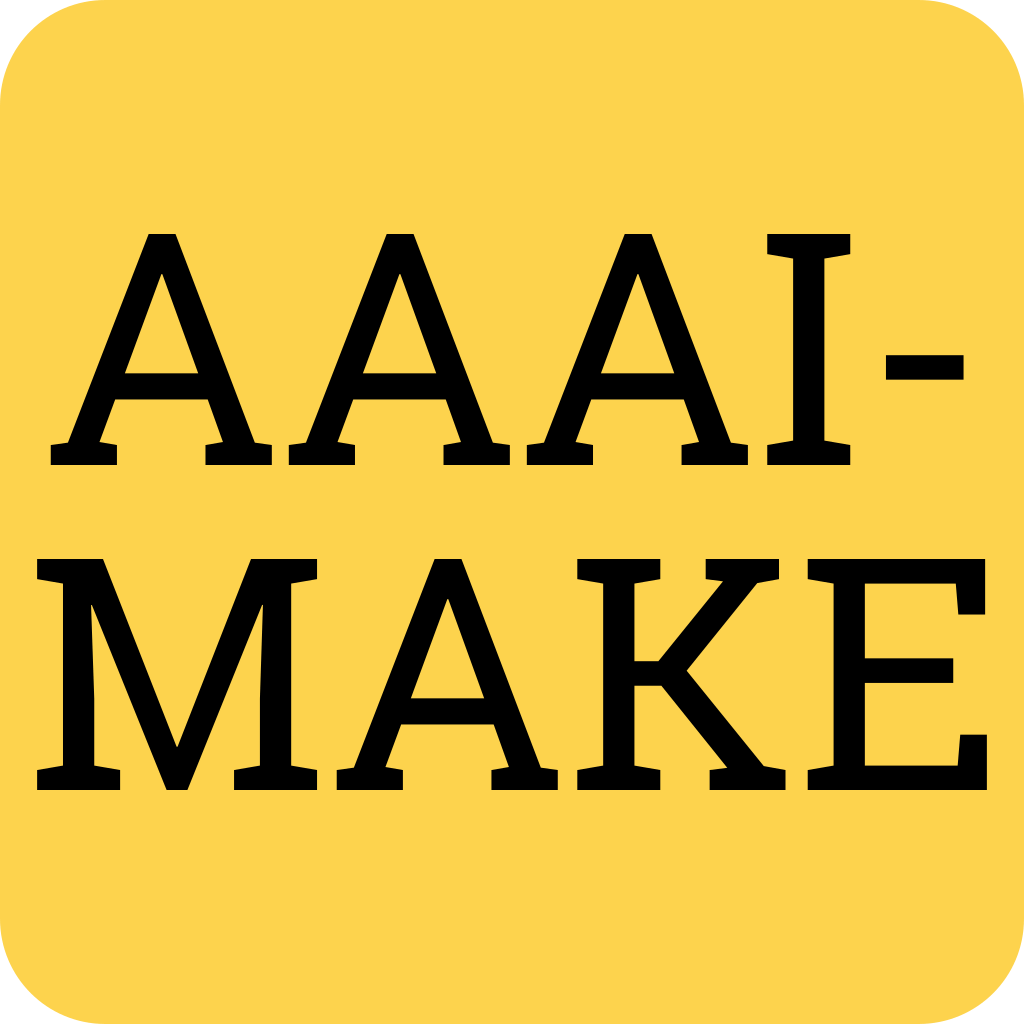Join us…
… and work together on a combined machine learning and knowledge engineering based AI and hybrid intelligence!
The AAAI-MAKE 2023 symposium brings together researchers and practitioners from machine learning and knowledge engineering to reflect on how combining the two fields can contribute to tackling future societal, environmental, business, and fundamental AI challenges. It aims to provide datasets, ontologies, initial research findings, or implications about sociotechnical impacts to academia and practitioners as accessible challenges.

AAAI-MAKE 2023 • AAAI Spring Symposium Series *
March 27-29, 2023 @ Hyatt Regency, San Francisco Airport, California, USA
Topics
- Machine Learning, Deep Learning, and Neural Networks
- Knowledge Engineering, Representation, and Reasoning
- AI Challenges with Datasets and/or Knowledge Graphs
- Hybrid (Human-Artificial) Intelligence and Human-in-the-Loop AI
- Commonsense and Explainable AI
- Hybrid AI and Neuro-symbolic AI
- Human-Centered AI, Dialogue Systems and Conversational AI
Since AAAI-MAKE is a dedicated symposium on combining machine learning and knowledge engineering, the contributions and challenges should address hybrid (artificial) intelligence settings.
Submission
We solicit challenge/short and position/full papers that can include recent or ongoing research, challenges with datasets (if available), and surveys. Application scenarios and requirements from the industry would be highly beneficial and most welcome.
Given the time frame of this 2023 symposium, the single-blinded review will be based on extended abstracts of challenge, position, and full or short papers.
- Challenge papers (5 to 9 pages) should describe future societal, environmental, business, or scientific challenges requiring hybrid AI and possibly provide datasets or ontologies. In a follow-up event, solutions shall be proposed for these challenges.
- Position/full papers (10 to 16 pages) and short papers (5 to 9 pages) can include recent or ongoing research, business cases, application scenarios, and surveys.
- Industrial side-tutorial event or demonstration proposals (less than 5 pages) should have a focus on business or research related to the symposium topics, excluding product advertising.
- Discussion proposals (1 to 2 pages) should contain a description of the specific topic with a list of questions and a discussion moderator.
All submissions must reflect the formatting instructions. Accepted papers shall be published on CEUR-WS, an established open-access proceedings website, whereas datasets should be uploaded to Zenodo. Please submit an extended abstract of your challenge, position, and full or short paper through EasyChair.
Important Dates
- Abstract submission: 17th of January 2023
- Notification: 31st of January 2023
- Camera-ready submission: 4th March 2023 (extended)
- Registration: 4th March 2023
- Symposium: 27-29 of March 2023
News
- November 25, 2022: WikiCFP.
- November 25, 2022: EasyChair Smart CFP.
- November 23, 2022: Call for Participation (CfP).
- November 11, 2022: Symposium proposal accepted.
- October 04, 2022: Symposium proposal submitted.
- April 14, 2022: Proceedings of AAAI-MAKE 2022 published.
Organizing Committee
Andreas Martin (primary contact), FHNW University of Applied Sciences and Arts Northwestern Switzerland.
Hans-Georg Fill, University of Fribourg, Switzerland.
Aurona Gerber, University of the Western Cape, South Africa.
Knut Hinkelmann, FHNW University of Applied Sciences and Arts Northwestern Switzerland.
Doug Lenat, Cycorp, Inc., Austin, TX, USA.
Reinhard Stolle, Argo AI GmbH, München, Germany.
Frank van Harmelen, VU University, Amsterdam, Netherlands.
Motivation
Many current AI solutions rely on machine learning approaches – with immense success. Machine learning helps to solve complex tasks based on real-world data. It is most suitable for building AI systems when knowledge is not known, or knowledge is tacit. Without a doubt, machine learning is in real momentum—impressive results, such as AI systems that can generate impressive images, generate texts, and even conduct quasi-human dialogues, clearly dominate the current discussion. While machine learning is now able to master data-intensive learning tasks, challenges remain. Many tasks require enormous amounts of training data, especially tasks where events to be predicted are rare. Often, machine output serves merely as a basis for decisions, which humans finally make.
On the other hand, knowledge engineering and knowledge-based systems, which make expert knowledge explicit and accessible, are typically based on logic and can explain their conclusions. These systems usually require a higher effort for development and maintenance than systems that use machine learning approaches. However, symbolic machine learning and ontology learning approaches are promising for reducing the effort of knowledge engineering.

Because of the complementary strengths and weaknesses, there is an ongoing demand for the creation of hybrid intelligent systems with intelligent human and artificial actors that requires AI systems inspired by human learning and reasoning capabilities. Focusing on only one aspect will not exploit the full potential of AI. Additionally, these hybrid AI systems cannot only be regarded as stand-alone but must be considered as part of intelligent information systems involving humans, organizations, and non-AI components.
Therefore, the symposium aims to bring together researchers and practitioners of machine learning and knowledge engineering from various research centres, companies, and academia to reflect on how combining the two fields can contribute to tackling future societal, environmental, business, and scientific fundamental AI challenges. Specifically, this symposium aims to make, initial research findings, knowledge bases, and application challenges accessible to researchers, and practitioners. Participants shall benefit from each other to avoid pitfalls on the one hand and provide the ground for synergetic co-operations to identify the most promising areas for better results.

